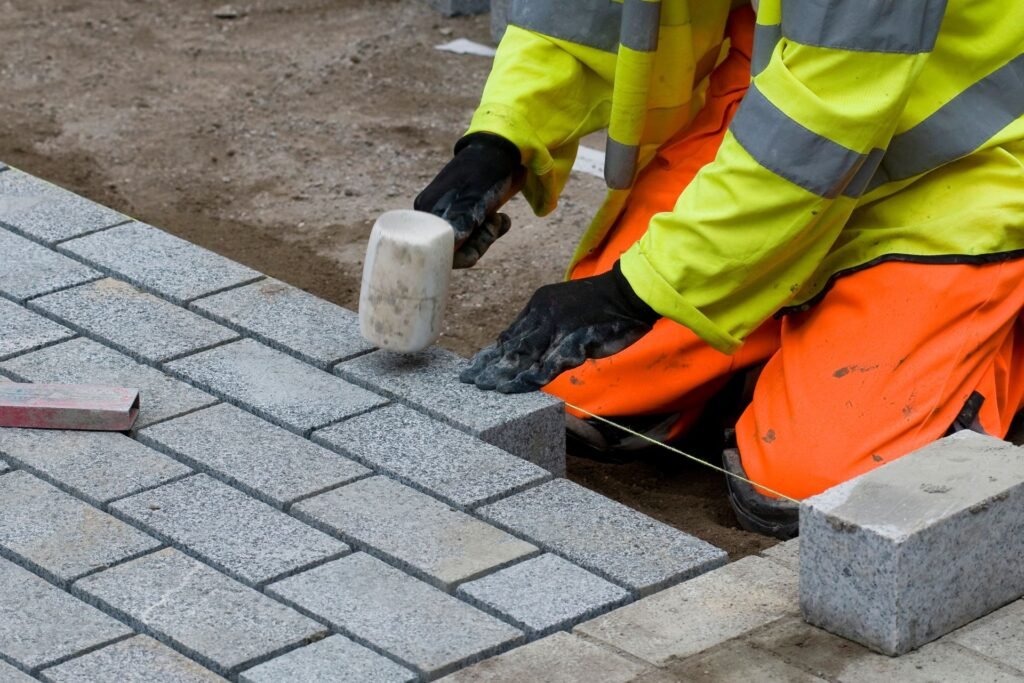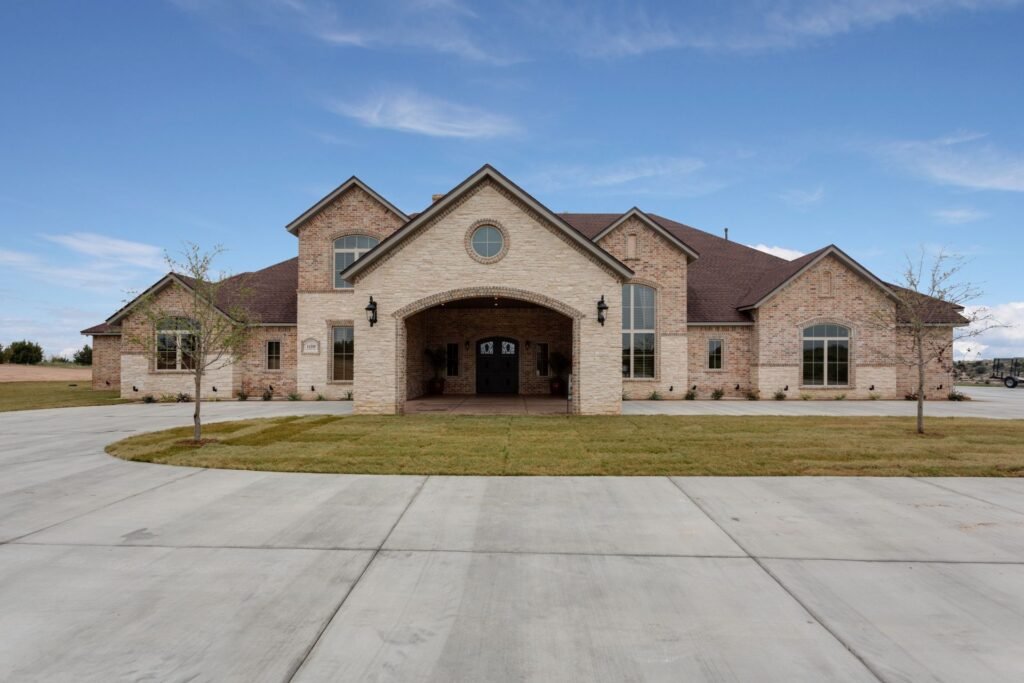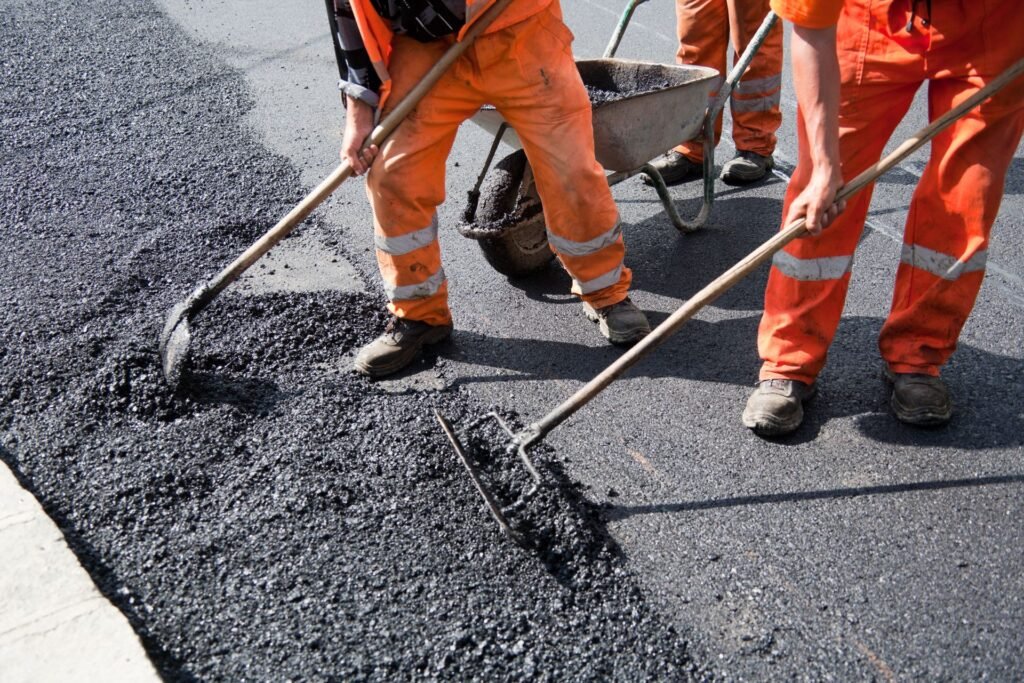Welcome to our comprehensive guide on understanding the cost of concrete slab foundations in New Zealand. Whether you’re planning to build a new home or a commercial property, it’s crucial to have a clear grasp of the expenses involved in laying a solid foundation. In this article, we will delve into the various factors that influence the cost of concrete slab foundations, explore average prices across different regions, and offer practical tips to help you budget effectively. From material and labor costs to site preparation and additional features, we’ve got you covered with all the essential information you need to make informed decisions and ensure a successful construction project.
On average, the cost of a concrete slab foundation in New Zealand ranges from $150 to $300 per square meter. This price includes materials, labor, and site preparation, but can vary based on factors such as region, slab thickness, and additional features like insulation and moisture barriers.
Table of Contents
Understanding Concrete Slab Foundations
Concrete slab foundations are a common choice for many types of buildings due to their simplicity and strength. Let’s break down what a concrete slab foundation is, explore the different types, and highlight the benefits of using this type of foundation for your construction projects.
Definition
A concrete slab foundation is a large, thick slab of concrete that is typically 4 to 6 inches thick in the center. It rests directly on the ground and is poured all at once. This type of foundation is widely used in residential and commercial buildings. The slab can be reinforced with steel rods or mesh to increase its strength and durability.
Types of Slab Foundations
There are several types of concrete slab foundations, each with its unique characteristics and applications. Understanding these can help you choose the best option for your specific needs.
Monolithic Slab Foundation
- Description: This type of slab is poured all at once, making it a continuous structure. The term “monolithic” means “single pour.”
- Uses: Common in areas with mild climates where the ground does not freeze deeply.
- Benefits: Quick and cost-effective to install.
T-Shaped Foundation
- Description: This traditional method involves constructing a separate footing below the ground level before the slab is poured. The footing is wider than the wall it supports.
- Uses: Suitable for regions where the ground freezes, providing better resistance to frost.
- Benefits: Offers extra support and stability.
Slab-on-Grade Foundation
- Description: This slab is poured directly on the ground, with the edges thicker than the interior of the slab. It’s reinforced with steel bars and sometimes insulation is added.
- Uses: Ideal for areas with warmer climates.
- Benefits: Economical and efficient, provides a solid base for the building.
Benefits
Choosing a concrete slab foundation comes with several advantages that make it an attractive option for many construction projects.
Durability
- Long-Lasting: Concrete is known for its strength and longevity. A well-constructed slab foundation can last for decades without significant maintenance.
- Resistant to Pests: Unlike wood, concrete is not susceptible to termite infestations and other pests that can compromise the integrity of the structure.
Cost-Effectiveness
- Lower Initial Costs: Compared to other types of foundations, concrete slabs can be less expensive to install, especially when using a monolithic pour.
- Reduced Labor Costs: The installation process is straightforward, often requiring less labor and time compared to other foundation types.
Energy Efficiency
- Thermal Mass: Concrete slabs have a high thermal mass, meaning they can absorb and store heat energy. This property helps in regulating indoor temperatures, reducing the need for additional heating and cooling.
- Insulation Options: When insulated properly, concrete slabs can further enhance the energy efficiency of a building, leading to lower utility bills.
Low Maintenance
- Minimal Upkeep: Once installed, concrete slab foundations require very little maintenance. They are resistant to moisture, mold, and rot, which are common issues with other foundation materials.
- Stable Surface: Provides a stable, level base that supports the structure of the building, reducing the likelihood of shifting or settling.
Concrete slab foundations are a practical, durable, and cost-effective option for many building projects. Understanding the different types and benefits can help you make an informed decision that suits your specific construction needs.

Factors Influencing Concrete Slab Foundation Costs
Understanding the factors that influence the cost of a concrete slab foundation is crucial for anyone planning a construction project. Several elements can impact the final price, from the materials used to the labor involved and additional features required for your specific needs. Here’s a comprehensive breakdown:
Material Costs
The cost of materials is a significant portion of the overall expense of a concrete slab foundation. The primary materials include concrete, rebar, and gravel:
- Concrete: The type and quality of concrete used can vary, impacting the price. Higher-strength concrete or special mixes designed for specific conditions (e.g., high moisture areas) will typically cost more.
- Rebar: Reinforcement bars (rebar) are essential for providing the structural integrity of the slab. The amount and quality of rebar required will depend on the load the slab needs to support, influencing the cost.
- Gravel: A gravel base is often necessary to provide a stable foundation and proper drainage. The depth and type of gravel used will vary based on soil conditions and project requirements.
Each of these materials has a fluctuating market price, which can vary regionally and over time. It’s essential to obtain current quotes from suppliers when budgeting for your project.
Labor Costs
Labor costs are another significant factor that can vary widely. These costs are influenced by:
- Region: Labour rates can differ significantly depending on the location. Urban areas with a higher cost of living tend to have higher labor rates compared to rural areas.
- Project Complexity: The complexity of the project affects labor costs. A straightforward, flat site will generally require less labor than a site with challenging conditions, such as slopes or poor soil quality.
Skilled labor, including concrete specialists, equipment operators, and general laborers, will all contribute to the total labor cost. It’s crucial to get detailed estimates from contractors to understand how labor costs will affect your budget.
Site Preparation
Before laying a concrete slab, proper site preparation is essential. The costs associated with site preparation include:
- Excavation: Removing soil to the required depth is necessary to create a stable foundation. The cost of excavation can vary based on the site’s size and soil conditions.
- Grading: Ensuring the site is level and properly graded is critical to prevent water pooling and ensure even load distribution. Grading costs depend on the site’s topography and the amount of work required.
- Soil Testing: Testing the soil for suitability can identify potential issues such as poor drainage or the need for additional stabilization measures. Soil testing helps avoid future problems but adds to the initial cost.
Proper site preparation ensures the longevity and stability of the foundation, making it a necessary investment.
Foundation Thickness
The thickness of the concrete slab is a crucial factor that directly impacts the cost. Thicker slabs require more concrete and reinforcement, increasing the material and labor costs. The required thickness depends on:
- Load Requirements: Heavier loads, such as those from industrial equipment or multi-story buildings, necessitate thicker slabs.
- Soil Conditions: Poor or unstable soil may require a thicker slab to provide adequate support.
Consulting with structural engineers and contractors will help determine the appropriate thickness for your specific project, balancing cost and structural integrity.
Additional Features
Several additional features can be incorporated into a concrete slab foundation, each adding to the overall cost:
- Insulation: Insulating the slab can improve energy efficiency and comfort in buildings, particularly in colder climates. The cost will depend on the type and amount of insulation used.
- Moisture Barriers: Moisture barriers protect the slab from groundwater and vapor, preventing damage and improving longevity. The quality and type of barrier influence the cost.
- Reinforcement: Additional reinforcement, such as wire mesh or fiber additives, can enhance the slab’s strength and durability, increasing the material cost.
These features may be necessary depending on your project’s specific requirements and local building codes.
Understanding these factors allows for more accurate budgeting and planning for a concrete slab foundation. By considering material and labor costs, site preparation, slab thickness, and additional features, you can ensure your project stays on track financially while meeting all structural and regulatory requirements.

Average Cost Of Concrete Slab Foundations In NZ
National Averages
The cost of concrete slab foundations in New Zealand can vary depending on a variety of factors, but on average, homeowners can expect to pay between $100 and $150 per square meter. This range can fluctuate based on the complexity of the project, the quality of materials used, and any additional features required, such as extra reinforcement or insulation.
Regional Variations
In New Zealand, the cost of concrete slab foundations can differ significantly from one region to another. For instance, in Auckland, where demand and living costs are generally higher, you might find the prices leaning toward the upper end of the spectrum, sometimes even surpassing $150 per square meter. On the other hand, in regions like Christchurch, where the market dynamics and labor costs differ, the prices might be closer to or even below the national average. These regional variations are influenced by factors such as local labor rates, material availability, and the overall cost of living in the area.
Comparison with Other Foundation Types
When considering different types of foundations, it’s essential to understand how concrete slab foundations stack up cost-wise. Compared to pile foundations, which involve driving long posts into the ground and can range from $200 to $300 per square meter, concrete slabs are often more affordable and straightforward to install. Basement foundations, which require extensive excavation and construction, are typically the most expensive, with costs ranging from $250 to $400 per square meter. Therefore, for many homeowners, concrete slab foundations offer a cost-effective and practical solution, especially in regions where the ground conditions are suitable and there is no need for extensive digging or additional support structures.
In summary, while the average cost of concrete slab foundations in New Zealand falls between $100 and $150 per square meter, regional differences can influence these prices significantly. Compared to other foundation types, concrete slabs present a more economical choice, making them a popular option for many building projects across the country.

Detailed Cost Breakdown
When planning a project, understanding the detailed cost breakdown is crucial for accurate budgeting and avoiding unexpected expenses. Here’s a comprehensive look at the various components involved:
Materials
One of the primary cost drivers for any construction project is the materials. This includes:
- Concrete: The price of concrete can vary depending on the grade and quality. High-strength concrete may be more expensive but necessary for certain projects.
- Steel Reinforcements: Reinforcing bars (rebar) are essential for providing structural integrity to concrete. Costs can fluctuate based on the size and quantity needed.
- Additional Materials: This might include gravel, sand, formwork materials, and any other specific items required for your project.
By getting detailed quotes for these materials, you can ensure you’re budgeting accurately and choosing the best options for your needs.
Labor
Labor costs are another significant part of your budget. This includes:
- Excavation: Preparing the site is the first step and can involve heavy machinery and skilled operators.
- Foundation Work: Setting up the foundation is labor-intensive, requiring precise work to ensure stability and safety.
- Finishing: This includes everything from smoothing and finishing surfaces to final inspections and touch-ups.
Labor costs can vary widely based on location, project complexity, and the expertise required.
Permits and Inspections
Before any work begins, you’ll need to secure the necessary permits and undergo inspections. Costs here can include:
- Permit Fees: These are required by local authorities to ensure your project meets all legal and safety standards.
- Inspection Costs: Inspections are typically required at various stages of the project to ensure compliance with building codes and regulations.
Ensuring all permits and inspections are accounted for in your budget is crucial to avoid delays and legal issues.
Miscellaneous Costs
Don’t forget to factor in various other potential expenses:
- Transportation: Moving materials and equipment to and from the site can add up quickly.
- Waste Disposal: Proper disposal of construction waste is essential and can incur additional fees.
- Equipment Rental: If your project requires specialized equipment, renting rather than purchasing can be cost-effective but should be included in your budget.
These miscellaneous costs can often be overlooked but are essential for a comprehensive and realistic budget.
A detailed cost breakdown helps in planning and executing a successful project. By considering materials, labor, permits, inspections, and miscellaneous expenses, you can create a thorough budget that minimizes surprises and keeps your project on track. Always consult with professionals and obtain detailed quotes to ensure accuracy and efficiency.

Tips For Reducing Concrete Slab Foundation Costs
When it comes to building a concrete slab foundation, managing costs effectively is crucial. Here are some practical tips to help you keep your expenses under control:
Planning and Design
Thorough planning and design are the cornerstones of any successful construction project. Engaging with an experienced designer or architect can save you a significant amount of money in the long run. These professionals can help you create a design that optimizes material use and minimizes waste. Additionally, they can foresee potential issues that might arise during construction, allowing you to address them in the planning stage rather than during the build, which is often more expensive.
Bulk Purchasing
Buying materials in bulk can lead to substantial savings. Suppliers often offer discounts for large orders, which can reduce the overall cost of your concrete slab foundation. Plan and calculate the total amount of materials you’ll need, then negotiate with suppliers for the best price. This strategy not only saves money but also ensures that you have all the materials on hand when needed, preventing delays.
DIY Aspects
There are several parts of the foundation process that homeowners can handle themselves to save on labor costs. Tasks like site preparation, such as clearing the area and leveling the ground, can be done without professional help. Additionally, tasks such as building the formwork, which holds the concrete in place as it sets, can be tackled by those with some DIY experience. However, it’s crucial to know your limits and leave more complex tasks, like pouring and finishing the concrete, to professionals to ensure the foundation’s integrity.
Getting Multiple Quotes
One of the simplest yet most effective ways to reduce costs is to get multiple quotes from contractors. By comparing prices, you can ensure you’re getting the best deal. When requesting quotes, provide detailed information about your project to receive accurate estimates. Don’t just go for the lowest price; consider the contractor’s reputation and experience. Sometimes, paying a bit more for a reputable contractor can save you money in the long run by avoiding poor workmanship and potential repairs.
Reducing the cost of your concrete slab foundation requires a combination of strategic planning, bulk purchasing, DIY efforts, and careful contractor selection. By following these tips, you can effectively manage your budget without compromising the quality of your foundation.

Case Studies Or Examples
Example 1: Residential Concrete Slab Foundation in Auckland
In Auckland, a family decided to build a new home and opted for a concrete slab foundation. This choice was influenced by the stability and durability that concrete slabs offer, especially in regions with variable soil conditions. Let’s break down the total costs and specific expenses involved in this project.
- Site Preparation: Before laying the concrete slab, the site needed proper preparation. This included clearing vegetation, leveling the ground, and creating a stable base. Site preparation cost around $5,000.
- Materials: The materials used in the concrete slab included cement, aggregate, sand, and steel reinforcement. For this project, the total material cost was approximately $15,000.
- Labor: Skilled labor is crucial for ensuring the slab is laid correctly. The labor cost for this project amounted to $12,000, covering the work of concrete pourers, finishers, and supervisors.
- Formwork: Creating the mold that holds the concrete in place as it cures is an essential step. The cost for formwork was about $4,000.
- Concrete Pouring: The actual process of pouring and curing the concrete, including equipment rental and additional labor, added another $10,000 to the project.
- Finishing and Curing: The final steps involved finishing the surface of the slab to ensure it’s smooth and level, followed by proper curing to reach optimal strength. These steps cost an additional $3,000.
Adding up all these expenses, the total cost for the concrete slab foundation for this residential project in Auckland was approximately $49,000.
This example demonstrates the various factors that contribute to the cost of a concrete slab foundation and provides a detailed breakdown of specific expenses.
Example 2: Commercial Concrete Slab Foundation in Wellington
For our second example, consider a commercial project in Wellington. The project involved constructing a medium-sized retail store with different parameters and costs compared to the residential project in Auckland.
- Site Preparation: Due to the commercial nature of the project, site preparation was more extensive, including soil testing and remediation. The total cost for site preparation was $8,000.
- Materials: Given the larger scale, the materials required were more significant. This project used high-strength concrete and more extensive steel reinforcement, leading to a material cost of $25,000.
- Labor: The complexity of a commercial foundation required additional skilled workers and longer hours, resulting in a labor cost of $20,000.
- Formwork: More intricate formwork was necessary to accommodate the building’s design and load requirements, costing around $7,000.
- Concrete Pouring: The process for this larger slab involved multiple pours and sophisticated equipment, which increased the cost to $18,000.
- Finishing and Curing: Ensuring a smooth finish suitable for a commercial floor and proper curing to handle heavy foot traffic added $5,000 to the budget.
The total cost for the commercial concrete slab foundation in Wellington was approximately $83,000.
This example highlights how different project parameters, such as region and project size, can significantly impact the overall cost of a concrete slab foundation. By comparing these two examples, it’s clear that understanding the specific needs and conditions of a project is crucial in accurately estimating costs.
These case studies provide a clear picture of how concrete slab foundation costs can vary based on project specifics. Whether it’s a residential project in Auckland or a commercial one in Wellington, factors like site preparation, material choice, labor, and project scale all play a critical role in determining the final expense. By examining these examples, homeowners and builders can better plan and budget for their concrete foundation projects.

FAQs: About The Concrete Slab Foundation Cost NZ
What is the average cost per square meter for a concrete slab foundation in NZ?
On average, the cost ranges from $150 to $300 per square meter, depending on factors like material quality, labor rates, and site conditions.
How does the thickness of the slab affect the cost?
Thicker slabs require more concrete and reinforcement, which increases both material and labor costs. Standard residential slabs are typically 100mm thick, but thicker slabs might be necessary for commercial or industrial projects.
Are there regional cost differences for concrete slab foundations in NZ?
Yes, costs can vary significantly between regions. Urban areas like Auckland and Wellington may have higher labor and material costs compared to smaller towns or rural areas.
What factors influence the overall cost of a concrete slab foundation?
Major factors include material costs (concrete, rebar), labor charges, site preparation (excavation, grading), foundation thickness, and additional features such as insulation and moisture barriers.
How long does it take to install a concrete slab foundation?
The installation process typically takes 1-2 weeks, including site preparation, formwork, pouring, and curing. However, project complexity and weather conditions can affect the timeline.
What are some ways to reduce the cost of a concrete slab foundation?
To reduce costs, consider thorough planning and design, buying materials in bulk, performing some DIY tasks, and obtaining multiple quotes from contractors to ensure competitive pricing.
Are there any hidden costs in concrete slab foundation projects?
Potential hidden costs include site-specific challenges (e.g., poor soil conditions), permit fees, inspections, and additional materials or labor required for unexpected issues.
How can weather conditions affect the cost and timeline of a concrete slab foundation?
Adverse weather, such as heavy rain or extreme temperatures, can delay the project and increase costs due to the need for protective measures or additional curing time.
Is it necessary to reinforce a concrete slab foundation?
Yes, reinforcement with steel rebar or mesh is typically necessary to enhance the slab’s strength and durability, especially for larger structures or areas with heavy loads.
What permits and inspections are required for concrete slab foundations in NZ?
Building permits are required for most concrete slab foundation projects. Inspections ensure compliance with local building codes and standards, which can incur additional costs and should be factored into the project budget.
Conclusion
We’ve explored the key aspects of planning and executing a foundation repair project, covering everything from initial assessments to cost considerations and the importance of choosing the right materials. Proper planning is crucial to keeping your project within budget, and seeking professional advice can provide invaluable insights and peace of mind. We encourage you to share your own experiences or ask any further questions in the comments section below. Your engagement helps build a community of shared knowledge and support, ensuring that everyone can approach their foundation repairs with confidence and clarity.
About the Author:
Mike Veail is a recognized digital marketing expert with over 6 years of experience in helping tradespeople and small businesses thrive online. A former quantity surveyor, Mike combines deep industry knowledge with hands-on expertise in SEO and Google Ads. His marketing strategies are tailored to the specific needs of the trades sector, helping businesses increase visibility and generate more leads through proven, ethical methods.
Mike has successfully partnered with numerous companies, establishing a track record of delivering measurable results. His work has been featured across various platforms that showcase his expertise in lead generation and online marketing for the trades sector.
Learn more about Mike's experience and services at https://theleadguy.online or follow him on social media:











